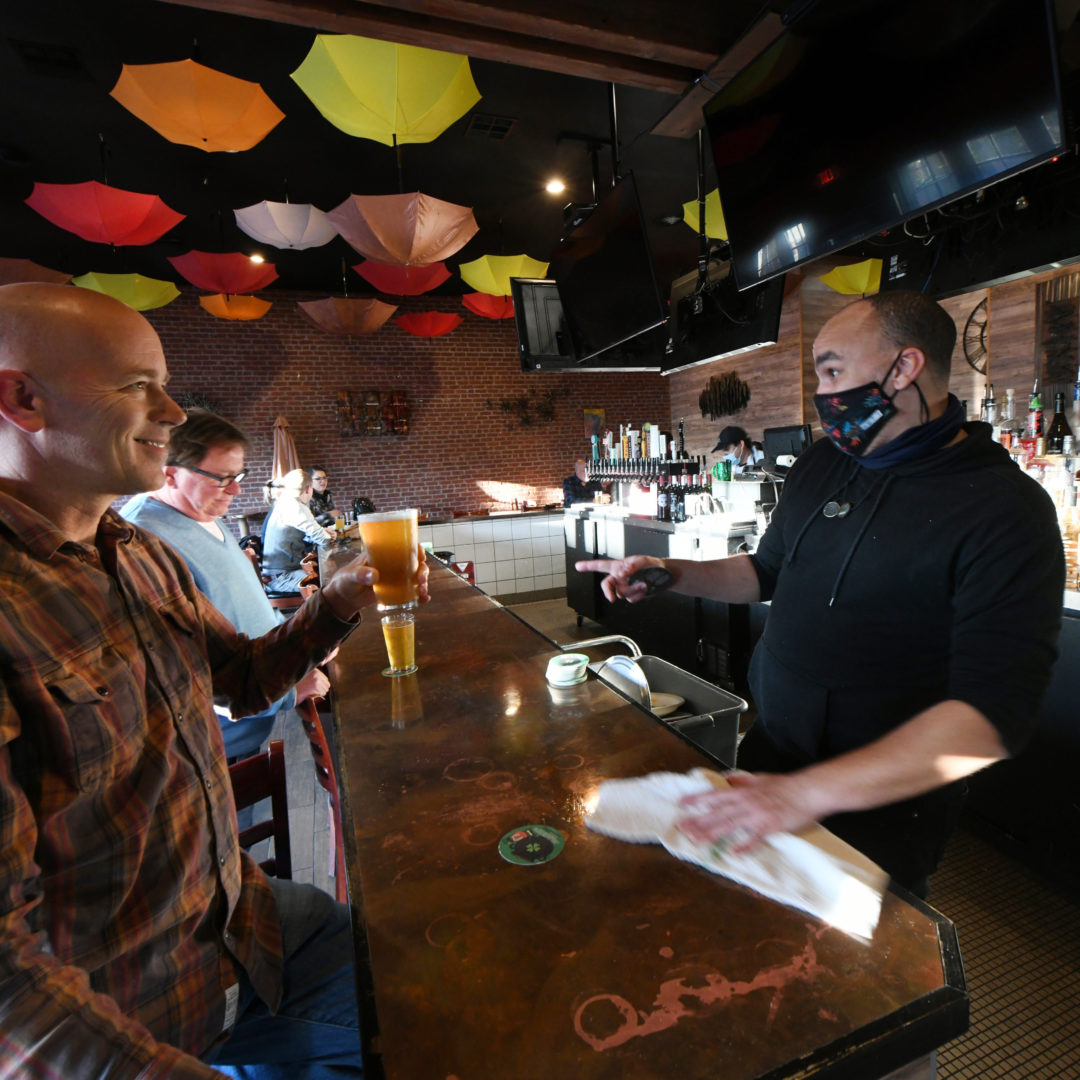 View Winners →
View Winners → 
On Friday, California met the vaccine equity goal that allowed public health jurisdictions in Los Angeles County, including Pasadena, to move into the less restrictive red tier of the state’s reopening roadmap on Monday.
As Los Angeles County geared up for some semblance of familiarity after an extraordinary 12 months of lockdown, the defining red tier reached is a delineating moment for better days ahead. The staggering loss of life, political turmoil and concerns of becoming another statistic weigh heavily on the minds of Southern Californians as we enter into the next phase of reopening businesses which we used to take for granted.
Remember a nice sit-down, relaxing dinner or a chat with your friends at your favorite local watering hole/speakeasy? I say that because, in a way, the restrictions put in place to protect us were not unlike those during Prohibition in the 1920s.
As of Monday, indoor dining, movie theatres and other businesses were allowed to reopen with limited capacity — restaurants at 25% for example.
One business owner in Monrovia, Joey Stevens, had to adapt to the ever-changing rules and regulations imposed not only by the state but the Los Angeles County Health Department.
“There was no logic behind the county’s thinking,” Stevens said. “One day we were allowed to open only for takeout, then outdoors, then no more. It was confusing to say the least. I had to lay off 11 employees during the pandemic which was painful for all. They are my family and have been with me for years,” the Copper Still Grill owner told Beacon Media.
Angry with the county health department’s mandates over the past year, a frustrated Stevens said that like West Covina, local cities should get together and form their own health department to maintain local control. “It could be cost effective if, let’s say, Monrovia, Arcadia, Azusa and Duarte joined forces and with those combined resources we could have a viable health department that cares about local businesses like restaurants who struggled to stay afloat even prior to the onset of the coronavirus pandemic.”
While they are obviously pleased to welcome customers back inside — especially during current cold wet spells — Stevens and his neighbor, Rudy Castellon of Rudy’s Mexican Restaurant, say they bent over backwards to adhere to the copious restrictions. During the ban on indoor dining, county health inspectors regularly pounded the pavement on Myrtle Avenue to look for violations. Some businesses on Myrtle were cited and Rudy’s Mexican Restaurant was closed for one week. Apparently, all violations have been rectified and all businesses remain open.
While restauranteurs say the safety and health of patrons and staff was their main priority, they found the statistics cited by officials targeted restaurants even as supermarkets and the like were granted more leniency. Adding salt to the wound, the county also imposed a ban on televisions at restaurants to dissuade people from lingering at tables towards the end of the winter surge.
“It’s crazy and just makes no sense … people congregated in their homes with no masks and had large parties to watch the Superbowl and World Series, mind boggling,” said Ted Jorgensen, a local contractor and IPA connoisseur. His friend, A.J. Rasic, confirmed Jorgensen’s belief, albeit in somewhat more colorful language.
Some businesses simply flouted some of the rules during the height of the pandemic to survive.
Another massive business casualty of the pandemic is the movie theater industry. Locally, Studio Movie Grill filed for bankruptcy protection as have some other major chains. Movie makers were forced to postpone or cancel scheduled realeases and it seemed, for a moment, that having dinner and going to a movie were nothing more than a historical anecdote.
There is some light at the end of the tunnel. AMC CEO Adam Aron said his company plans to reopen theaters in Los Angeles on March 19.
“It’ll take a few days to assemble staff, but all protocols are set,” Aron told Fox Business’ Liz Claman last week. However, it will be only at 25% capacity initially. Not exactly a profitable percentage.
To raise theater capacity to 50%, the county will need to qualify for the orange tier which requires that new daily cases fall below four per 100,000 people. Theaters and studios hope all California counties reach that threshold by summer, when studios usually release giant blockbusters.
The Wrap’s Jeremy Fuster writes that “Theaters in Los Angeles that are not part of major nationwide chains may take until early April to open back up.”
Gyms and fitness centers also can now offer indoor services at 10% capacity, retail and personal care businesses can increase indoor capacity to 50%. Indoor shopping malls can reopen at 50%, with common areas remaining closed, but food courts can open at 25% capacity and in adherence with the other requirements for indoor restaurants. Museums can open indoors at 25% of capacity.
Another massive business casualty of the pandemic has been concerts and tours that came to a standstill last spring. According to Rolling Stone magazine “It was one of the earliest industries forced to shut down, and it will likely be one of the last to reopen. In the meantime, promoters and booking agents have lost jobs, venues have shuttered, artists have been cut off from one of their most reliable streams of income, and thousands of tour crew members have faced a financial and existential reckoning.”
Starting April 1, outdoor live performances — including concerts and sporting events — and theme parks can once again welcome guests, but capacity must be limited to 15%.
Stage productions have also suffered insurmountable losses. The entertainment industry as a whole has a long way to recover the losses and at limited capacity, financial viability will certainly be paramount. Local venues such as The Rose in Pasadena simply shuttered operations entirely until further notice.




































































































